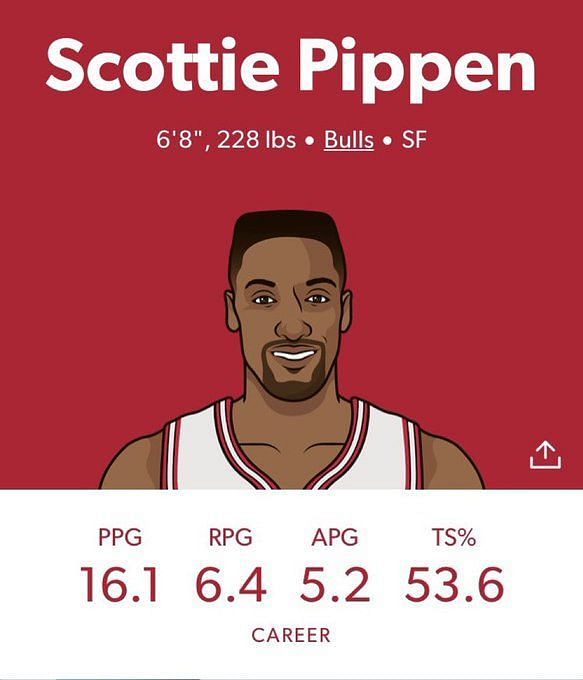
When Scottie Pippen signed a 7 year contract worth $18 million, which would later end up destroying the Bulls dynasty
Scottie Pippen is a name that brings up feelings of both fondness and respect for basketball enthusiasts throughout history. Pippen's exceptional athleticism, defensive skills and adaptability made him a crucial player in the Chicago Bulls' reign in the 1990s.
Pippen and the Bulls' fate would hinge on a solitary choice: agreeing to a $18 million, seven-year deal — an act that would bring both good fortune and misfortune.
Scottie Pippen signed a contract in 1991 that was perceived as reasonable and equitable back then. The value of his contract was determined by the market rate for a player with similar skills. The NBA's financial situation was on the verge of a major transformation, unbeknownst to many.
Player salaries skyrocketed as the league underwent tremendous expansion following Michael Jordan's transcendent stardom. Pippen's contributions to the court were not proportionally compensated, leaving him severely underpaid.
Pippen's contract, while financially restrictive for him, allowed the Bulls to maintain a strong supporting cast around their dynamic duo of Jordan and Pippen. It was a key factor in their unprecedented success, as they secured six NBA championships between 1991 and 1998.
Over time, Pippen's discontent with his agreement intensified. The emergence of lucrative deals for other players created a stark contrast between Pippen's compensation and his market value. It bred resentment and frustration within him, which boiled over during the 1997–98 season.
Pippen demanded a trade, publicly expressing his discontent with the Bulls' management and the inequality of his salary.
While Pippen's frustration was understandable, his contract became a double-edged sword. This ultimately led to Pippen staying put, but the damage was done. The chemistry and harmony that had defined the Bulls' dynasty were fractured, and the writing was on the wall.
The Downfall of the Bulls Dynasty: How Scottie Pippen's contract created tension and led to dissolution

Following the 1998 championship, the Bulls made the difficult decision to dismantle the team. Phil Jackson, the legendary coach, departed, and key players were traded or left in free agency. The curtain had fallen on an era of unparalleled success, and the repercussions of Pippen's contract negotiations were undeniable.
Looking back, one could make a case that Pippen's contract negatively affected the success of the Bulls dynasty.
Tension and a feeling of injustice arose due to his low salary. The team's success relied on strong camaraderie, but this was undermined and eroded. Pippen's contract, although a financial hindrance just for him, inadvertently contributed to the dissolution of a legendary basketball dynasty.
Scottie Pippen's career and contributions to the game cannot be diminished. The Bulls dynasty started to crumble due to the seven-year contract worth $18 million, which initially appeared to be a fair agreement.
It could be debated that the team's downfall was ultimately caused by the contract, which initially seemed promising. It stands as a reminder of the delicate balance between loyalty, compensation and the long-term implications of contractual decisions in professional sports.

